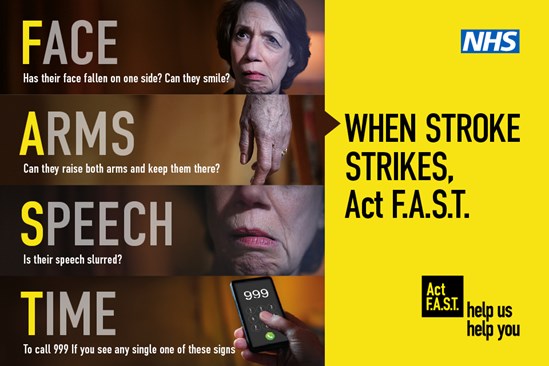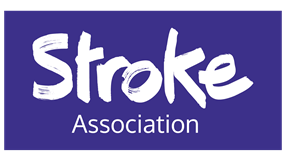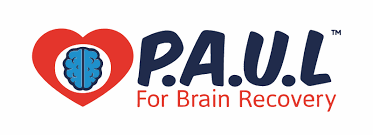Stroke
About Stroke
A stroke is a serious life-threatening medical condition that happens when the blood supply to part of the brain is cut off. Strokes are a medical emergency and urgent treatment is essential. The sooner a person receives treatment for a stroke, the less damage is likely to happen.
If you suspect that you or someone else is having a stroke, phone 999 immediately and ask for an ambulance.
Symptoms of a Stroke
The main symptoms of stroke can be remembered with the word FAST:
- Face – the face may have dropped on 1 side, the person may not be able to smile, or their mouth or eye may have dropped.
- Arms – the person with suspected stroke may not be able to lift both arms and keep them there because of weakness or numbness in 1 arm.
- Speech – their speech may be slurred or garbled, or the person may not be able to talk at all despite appearing to be awake; they may also have problems understanding what you're saying to them.
- Time – it's time to dial 999 immediately if you see any of these signs or symptoms.

Causes of a Stroke
Like all organs, the brain needs the oxygen and nutrients provided by blood to function properly.
If the supply of blood is restricted or stopped, brain cells begin to die. This can lead to brain injury, disability and possibly death.
There are 2 main causes of strokes:
- ischaemic – where the blood supply is stopped because of a blood clot, accounting for 85% of all cases
- haemorrhagic – where a weakened blood vessel supplying the brain bursts
Certain conditions increase the risk of having a stroke, including:
- high blood pressure (hypertension)
- high cholesterol
- irregular heart beats (atrial fibrillation)
- diabetes
Effects of a Stroke
People who survive a stroke are often left with long-term problems caused by injury to their brain.
Some people need a long period of rehabilitation before they can recover their former independence, while many never fully recover and need ongoing support after their stroke.
Psychological Impact
Two of the most common psychological problems that can affect people after a stroke are:
- depression – many people experience intense bouts of crying, feel hopeless and withdraw from social activities
- anxiety – where people experience general feelings of fear and anxiety, sometimes with moments of intense, uncontrolled feelings of anxiety (anxiety attacks)
Cognitive Impact
Cognitive is a term that refers to the many processes and functions our brain uses to process information. One or more cognitive functions can be disrupted by a stroke, including:
- communication
- spatial awareness – having a natural awareness of where your body is in relation to your immediate environment
- memory
- concentration
- executive function – the ability to plan, solve problems and reason about situations
- praxis – the ability to carry out skilled physical activities, such as getting dressed or making a cup of tea
Movement Problems
Strokes can cause weakness or paralysis on one side of the body, and can result in problems with co-ordination and balance.
Many people also experience extreme tiredness (fatigue) in the first few weeks after a stroke, and may also have difficulty sleeping, making them even more tired.
Communication Problems
After having a stroke, many people experience problems with speaking and understanding, as well as reading and writing.
If the parts of the brain responsible for language are damaged, this is called aphasia, or dysphasia.
If there's weakness in the muscles involved in speech as a result of brain damage, this is known as dysarthria.
You should see a speech and language therapist as soon as possible for an assessment and to start therapy to help you with your communication.
This may involve:
- exercises to improve your control over your speech muscles
- using communication aids – such as letter charts and electronic aids
- using alternative methods of communication – such as gestures or writing
Swallowing Problems
The damage caused by a stroke can interrupt your normal swallowing reflex, making it possible for small particles of food to enter your windpipe.
Problems with swallowing is known as dysphagia. Dysphagia can lead to lung damage, which can trigger a lung infection (pneumonia).
You may need to be fed using a feeding tube during the initial phases of your recovery to prevent any complications from dysphagia.
The tube is usually put into your nose and passed into your stomach (nasogastric tube), or it may be directly connected to your stomach in a small operation done using local anaesthetic (percutaneous endoscopic gastrostomy, or PEG).
Treatment may involve tips to make swallowing easier, such as taking smaller bites of food and advice on posture, and exercises to improve control of the muscles involved in swallowing.
Visual Problems
Stroke can sometimes damage the parts of the brain that receive, process and interpret information sent by the eyes.
This can result in losing half the field of vision – for example, only being able to see the left or right side of what's in front of you.
Stroke can also affect the control of the eye muscles. This can cause double vision.
If you have problems with your vision after a stroke, you'll be referred to an eye specialist called an orthoptist, who can assess your vision and suggest possible treatments.
Bladder and Bowel Control
Some strokes damage the part of the brain that controls the bladder and bowel.
This can result in urinary incontinence and difficulty with bowel control.
Some people may regain bladder and bowel control quite quickly, but if you still have problems after leaving hospital, help is available from the hospital, your GP and specialist continence advisers.
Ask for advice if you have a problem, as there are lots of treatments that can help that include:
- bladder retraining exercises
- medicines
- pelvic floor exercises
- using incontinence products
Caring for Someone who's had a Stroke
There are many ways you can provide support to a friend or relative who's had a stroke.
These include:
- helping them do their physiotherapy exercises in between their sessions with the physiotherapist
- providing emotional support and reassurance that their condition will improve with time
- helping to motivate them to reach their long-term goals
- adapting to any needs they may have, such as speaking slowly if they have communication problems
Caring for someone after they've had a stroke can be a frustrating and lonely experience. The advice outlined below may help.
Be prepared for changed behaviour
Someone who's had a stroke can often seem as though they have had a change in personality and appear to act irrationally at times.
This is the result of the psychological and cognitive impact of a stroke.
They may become angry or resentful towards you. Upsetting as it may be, try not to take it personally.
It's important to remember they'll often start to return to their old self as their rehabilitation and recovery progresses.
Try to remain patient and positive
Rehabilitation can be a slow and frustrating process, and there will be times when it seems as though little progress has been made.
Encouraging and praising any progress, no matter how small it may appear, can help motivate someone who's had a stroke to achieve their long-term goals.
Make time for yourself
If you're caring for someone who's had a stroke, it's important not to neglect your own physical and psychological wellbeing.
Socialising with friends or pursuing leisure interests will help you cope better with the situation.
Preventing Further Strokes
If you have had a stroke, your chances of having another one are significantly increased.
You'll usually require long-term treatment with medicines that improve the risk factors for your stroke.
For example:
- medicine – to help lower your high blood pressure
- anticoagulants or antiplatelets – to reduce your risk of blood clots
- statins – to lower your cholesterol levels
You'll also be encouraged to make lifestyle changes to improve your general health and lower your stroke risk, such as:
- eating a healthy diet
- exercising regularly
- stopping smoking if you smoke
- drinking alcohol within the recommended limits




